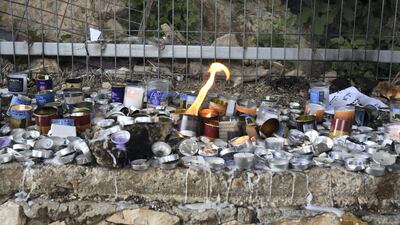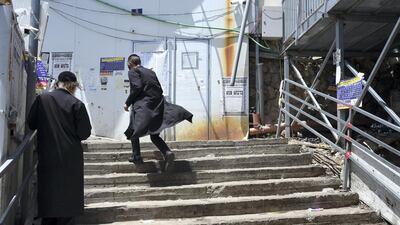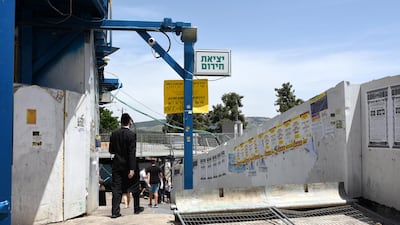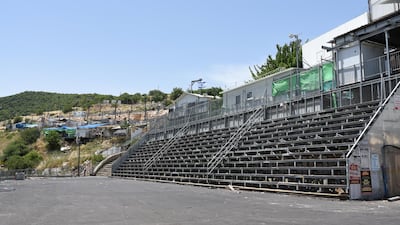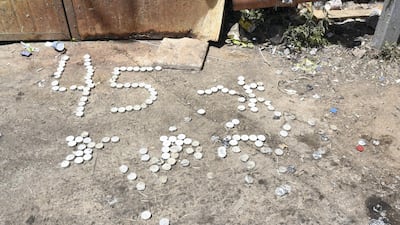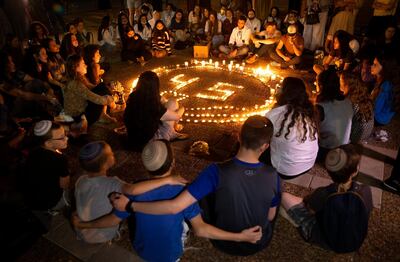On a mountainside in northern Israel, Jews gather to mourn 45 people crushed to death at a religious festival. One week on from the country’s worst civilian disaster, some worshippers believe nothing could have prevented such an act of divine intervention.
“Every single year it was packed; the same exit, the same entrance. But this year something was different. Something that was from up above. There’s no [other] explanation,” said Aviva Naki, who had travelled from Jerusalem to Mount Meron.
Surrounded by tree-covered hills, the mountain hosts hundreds of thousands of Jews each year to mark the Lag BaOmer festival.
On April 29, an estimated 100,000 worshippers had already gathered for the celebration, which is renowned for its bonfires and dancing, when emergency services were alerted to the crush shortly after midnight.
As ultra-Orthodox men and boys packed into a narrow passageway at the site, witnesses say some slipped and dozens were killed as others fell on top of them. Around 150 worshippers were injured.
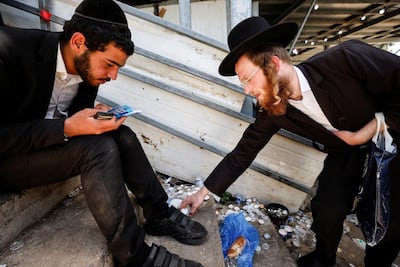
With tear-filled eyes, Mrs Naki said she and her husband wanted to see what had happened and pray.
"I don't have any complaints against anybody, not the municipality, not the police," she told The National. "It happened for a different reason, not something within their control."
The smell of wax hangs in the air, as hundreds of candles surround the concrete steps where the victims fell.
Ariel Levi, 20, returned to the site where a week earlier he says paramedics pressed him to support the rescue effort.
“I was the one to take the seventh body, and then the bodies kept coming,” he said, after being passed a stretcher by medics who told him to race to the passage.
Mr Levi, from the coastal city of Ashdod, said he helped carry the bodies and cover them as they were laid out on nearby tarmac. At one point, one of the victim’s phones began ringing.
“People started coming to the fences, looking for their relatives, screaming,” he said.
“The whole day was terrible. Even after we finished laying out the bodies, I came up here and saw hats, and caps, and glasses. It was terrible,” said Mr Levi, who studies at a religious institution.
Israel held a national day of mourning on Sunday for the victims, while the country’s governmental watchdog has said it will open an investigation into the disaster.
Criticism has focused on the role of religious authorities and Israeli officials in managing the site, as well as the broader relationship between ultra-Orthodox Jews and the state.
Throughout the coronavirus pandemic the religious community has been accused of flouting health measures, with the vast crowds at the Lag BaOmer celebrations far exceeding the official limit.
Mr Levi, whose friend’s brother died in the crush, said the tragedy had come from God.
“I saw some were dead, some were alive, so it’s divine intervention,” he said.
“This does not contradict the fact that something needs to be done in terms of a proper investigation and the people responsible to be held accountable.”
Although Prime Minister Benjamin Netanyahu has promised a thorough probe, the government is yet to announce any measures which could prevent such an incident recurring.
Despite the tragedy, worshippers will keep coming to Mount Meron to mark Lag BaOmer.
“It’s something that you can’t put into words. It’s something that’s very, very holy,” said Mrs Naki, in her sixties, of the many times she has attended the celebrations.
Hila Cohen Lang, whose husband was en route to Mount Meron at the time of the crush, said many people were drawn to the event by its sheer size.
“I think when you come for a religious ceremony, there’s a lot of power to the crowd,” said the 44-year-old, who works nearby.
“Many people feel more when they are part of something bigger than them, and that’s why Lag BaOmer is so crowded.”
She chose to visit the site to pay respects to the victims as well as to listen to those who witnessed the disaster.
“I hear many voices here, of anger and sadness,” said Mrs Cohen Lang, explaining that she hoped the shocking incident could help heal divisions between religious and secular Israelis.
“I hear the voices of separation, but as well I hear the empathy,” she said. “Many people that usually wouldn’t come here, and suddenly they have the feeling that they want to be here.”
